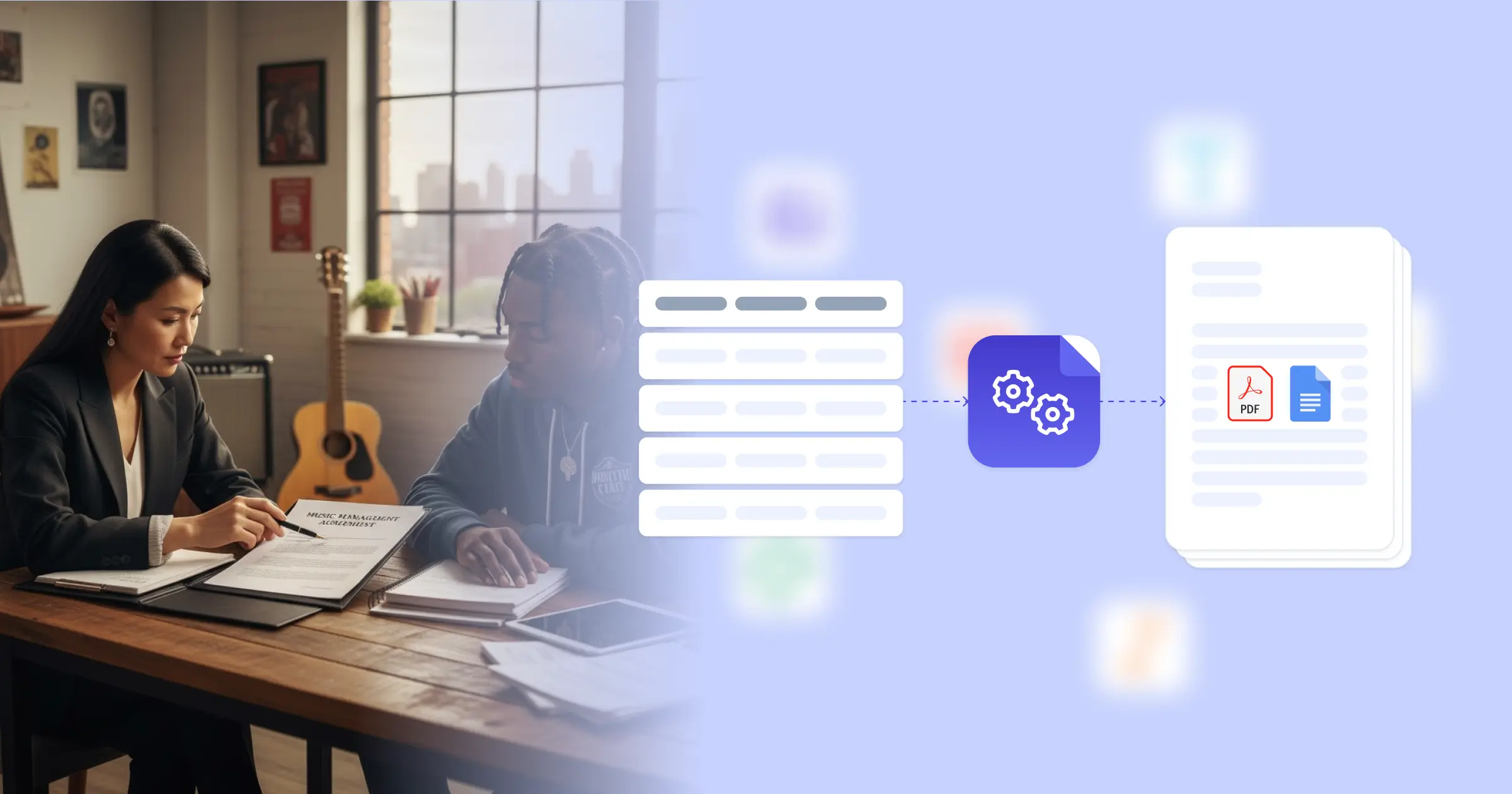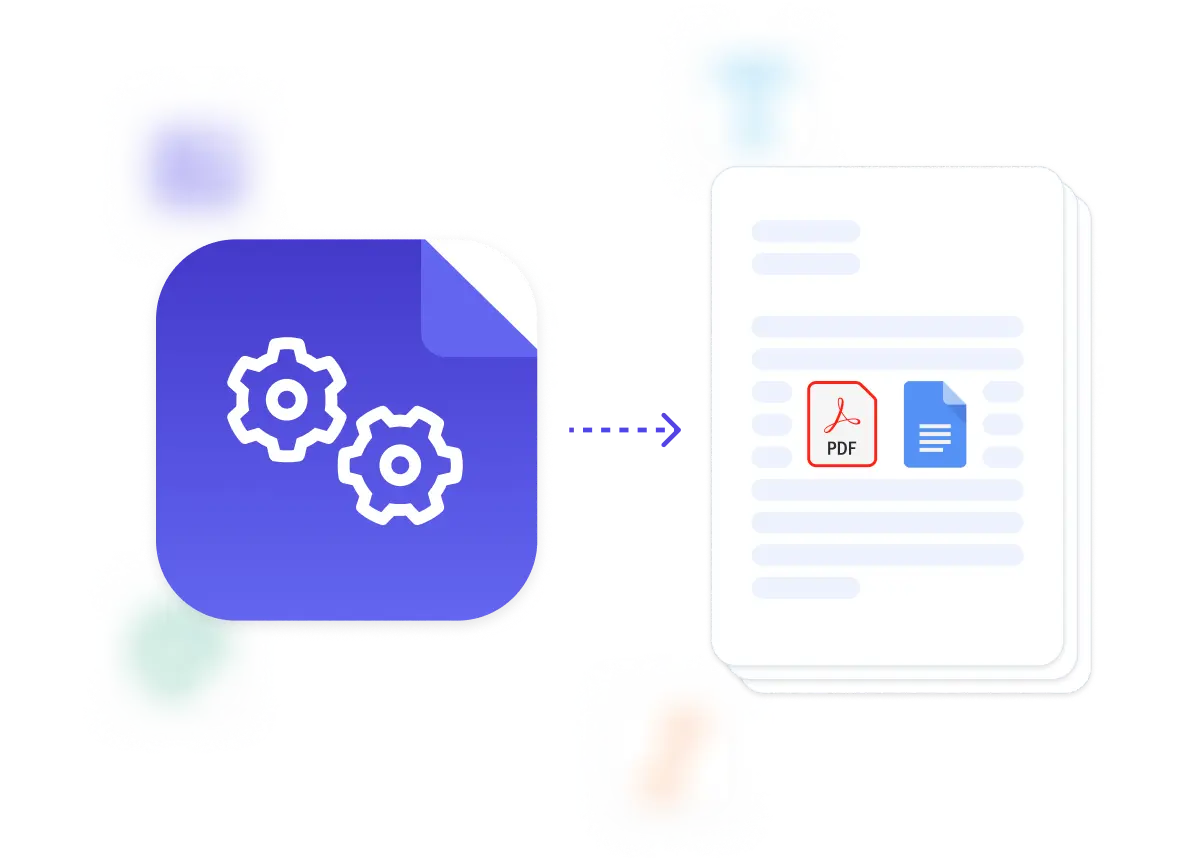
Understanding Music Management Contracts for Artist Organizations
Music management contracts govern relationships between artists, management agencies, venues, collaborators, and industry partners in the recording and live performance business. According to Billboard's industry analysis, digital contract management has become essential as artists manage increasingly complex revenue streams from streaming, touring, merchandise, and licensing. Artist managers traditionally copy artist details from roster databases, performance terms from venue emails, and commission structures from rate sheets into contract templates. The mechanisms can be improved by automating the process: Simply connect Google Docs templates with your artist database, whether that's Airtable tracking your roster, ClickUp managing bookings, or custom systems via API, and contracts generate with artist names, performance specifications, and financial terms already populated. Your team books shows, signs collaborators, and onboards new artists without document assembly delays.





























